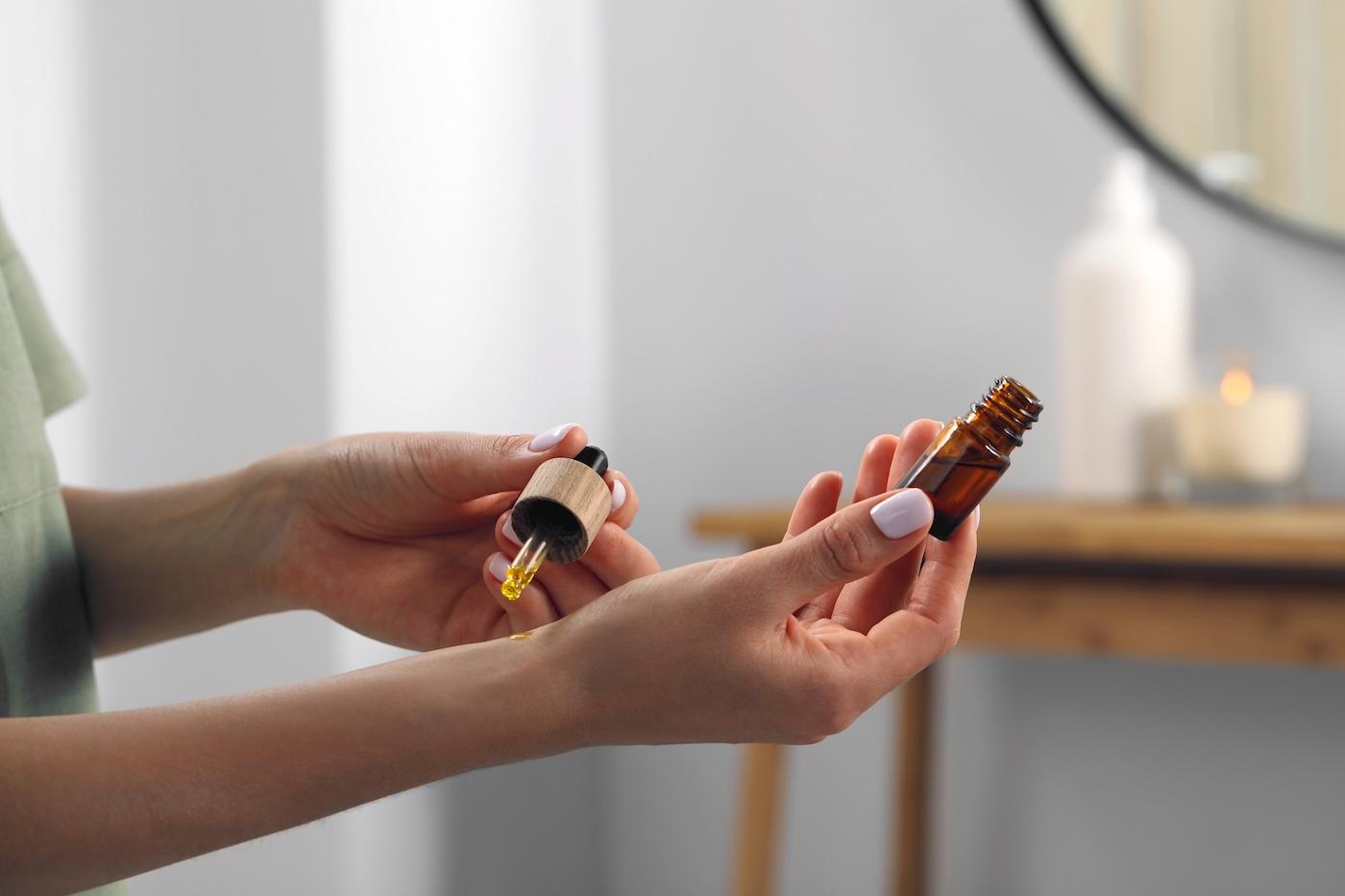PREGNANCY
7 Habits to Boost Your Baby’s Brain Development Before Birth
Nurture your nugget's noggin before birth!

Written by
Happiest Baby Staff

Your baby’s brain grows at an astonishing pace: by the seventh week of pregnancy, new brain cells are being created at roughly 250,000 neurons per minute! While much of brain development is guided by genetics, research shows that a parent’s lifestyle and environment can help boost healthy brain growth. Here are evidence-backed habits that can nurture your baby’s brain development even before birth.
Stay active.
One of the best gifts you can give your baby’s brain is to get moving (with your doctor’s OK, of course!). Moderate exercise during pregnancy increases blood flow and oxygen to both you and your baby, creating a healthier environment for the developing brain. In fact, studies have found that moms who stay physically active tend to have babies with more advanced brain development. For example, higher maternal activity levels are associated with greater newborn cortical brain thickness, which suggests better brain maturation. Another study found that just 20 minutes of moderate exercise (like brisk walking) three times a week led to newborns with more mature brain function on EEG scans.
The benefits of prenatal exercise are so clear that experts encourage it for most healthy pregnancies. The CDC recommends aiming for 150 minutes of moderate exercise per week (e.g. 30 minutes, 5 days a week) during pregnancy. A few safe options include brisk walking, prenatal yoga, swimming, or stationary cycling.
Manage stress.
Finding ways to reduce stress is more than just self-care, it’s baby brain care! High levels of maternal stress hormones (like cortisol) can cross the placenta and affect the developing fetal brain. A growing body of research using prenatal MRI has shown that when an expectant mother is very stressed, anxious, or depressed, the baby’s brain may develop differently. For instance, one study found that maternal stress (even short of a diagnosed disorder) was linked to babies having a smaller hippocampus (a brain region important for memory) and other structural changes. And by 18 months of age, infants who were exposed to higher prenatal stress scored lower on cognitive development tests.
The good news is that managing your stress can help buffer your baby! In one University of California San Francisco study, pregnant women under high stress took an 8-week mindfulness meditation class. The results were remarkable: Their infants at 6 months old showed healthier stress responses (calming themselves more quickly and “bouncing back” faster after a stressor) than infants whose moms didn’t get the mindfulness training. In other words, a calmer pregnancy can lead to a calmer, more resilient baby. Experts call this a “two-generation” effect, as helping moms cope with stress benefits children too.
Here are some stress-busting habits to practice during pregnancy:
- Prioritize rest and sleep: Getting enough sleep and even short naps can stabilize your mood and lower stress hormones. (Check out our Pregnancy Guide to Better Sleep!)
- Mindfulness and breathing exercises: Try prenatal yoga, meditation apps, or simply deep breathing for a few minutes when you feel overwhelmed. (More on why meditation during pregnancy matters.)
- Stay connected and ask for help: Talk about your feelings with your partner, a friend, prenatal support group, or therapist. (Learn how to recognize pregnancy depression.)
- Gentle activities to relax: Take a walk in nature, listen to music, take a warm (not hot) bath, or practice a hobby. Even a few minutes of “you time” a day can recharge your mental health.
Talk, read, and sing to your baby bump.
By the middle of pregnancy, your baby’s ears are developed enough to hear sounds outside the womb. Researchers have found fetuses respond to voices and noise by around 25 to 26 weeks of gestation. In fact, babies can even distinguish their mother’s voice and the general rhythm of their native language before they’re born!
Why is this important? Hearing voices, music, and reading aloud provides sensory stimulation that helps the auditory parts of your baby’s brain develop. As one scientist explained, without exposure to sound, the fetal auditory cortex wouldn’t get enough input to wire itself correctly – the sounds of voices and language actually help the brain form connections. The UK’s National Health Service also encourages parents-to-be to chat and sing to baby bumps, noting that it helps babies tune their hearing and get ready for language, while also making them feel safe and comforted by familiar voices.
Try making it a daily habit to narrate your day, read a story, or sing a lullaby to your unborn baby. You can:
- Read a short children’s book or chapter of your favorite novel out loud each evening.
- Sing a simple lullaby or play gentle music while you relax (just avoid blasting sound directly on your belly with headphones).
- Have your partner talk to the baby too!
- Use a warm, sing-song tone—newborns are particularly drawn to higher-pitched, melodic voices (that “baby talk” tone comes naturally!).
Take your prenatal vitamins.
Proper nutrition is critical for brain development! In addition to loading up on healthy eats, make taking a prenatal vitamin—with folic acid!—a priority. Folic acid (the synthetic form of folate, a B-vitamin) is essential to early brain and nervous system formation. It helps the embryonic neural tube close and develop into the baby’s brain and spinal cord. Getting enough folic acid before and during early pregnancy (at least 400 micrograms daily) can prevent major neural tube defects of the brain (like anencephaly) and spine (spina bifida).
Get to all your checkups.
At your prenatal appointments your doc will monitor your baby’s growth and your health – including managing conditions like high blood pressure, diabetes, or thyroid issues – which can affect fetal brain development if uncontrolled. Following your doctor’s advice on things like weight gain, vaccinations (e.g. flu shot), and any needed supplements (iron, iodine, vitamin D, etc.) will ensure your baby’s brain is getting all the building blocks and protection it needs. Think of your prenatal appointments as part of your brain-boosting routine: they help catch any issues early so you can address them and give your baby the best possible start.
Stay hydrated and avoid overheating.
Drink plenty of water and be cautious with hot tubs or saunas, as excessive heat can be harmful to a developing fetus, especially during early pregnancy. Adequate hydration helps maintain healthy blood flow to the uterus and placenta, delivering oxygen and nutrients that growing brain cells rely on. (Read more about the importance of hydration during pregnancy.)
Avoid harmful substances.
Just as positive habits can help your baby’s brain, certain substances and exposures can hurt it. Here are critical habits to avoid for the sake of healthy brain development:
Alcohol
There is no known safe amount of alcohol in pregnancy. Drinking can interfere with the baby’s brain development at any stage and can lead to fetal alcohol spectrum disorders, which involve lifelong cognitive and behavioral impairments. Alcohol is a potent neurotoxin for a developing brain. It can disrupt how neurons form connections and even alter brain structure. If you’re struggling to quit, talk to your provider. Help is available!
Smoking and Vaping
Cigarette smoke contains toxic chemicals like nicotine and carbon monoxide that reduce oxygen supply to your baby. Smoking in pregnancy can damage your baby’s developing brain and lungs, with effects that last into childhood. Babies of smokers are at higher risk for learning difficulties, behavioral issues, and Sudden Infant Death Syndrome (SIDS) as well. Studies have even shown that fetuses of smoking mothers have slower growth of the head and brain during pregnancy. Also, avoid secondhand smoke—ask family members to smoke outside away from you.
Other Drugs and Toxins
Illicit drugs like cocaine, methamphetamine, opioids, or excessive cannabis can seriously derail fetal brain growth and cause withdrawal or developmental problems in newborns. Always check with your doctor before taking any medication (even herbal supplements. Also, limit exposure to chemicals that could be neurotoxic. For example, avoid high-mercury fish (like shark or swordfish), steer clear of lead paint or fumes, and use safe cleaning products. Using proper ventilation and gloves for any necessary household chemicals is wise.
Brain-Boosting Beyond Birth
Remember, brain development doesn’t stop at birth— it’s an ongoing journey! After birth, keep engaging in responsive, loving interactions…cuddling your baby, making eye contact, smiling, and talking to them. These behaviors release hormones that foster brain growth and secure attachment. Skin-to-skin contact, breastfeeding if you choose, and continuing to read and play will all build on the strong start you gave your little one during pregnancy.
More Tips for a Healthy Pregnancy:
- Build Your Baby’s Brains With These Foods
- Labor Relaxation Techniques for an Easier Birth
- Low-Dose Aspirin: What Expectant Parents Need to Know
- Nutrients You Need During Pregnancy
***
REFERENCES
- For Neurons, Where They Begin Isn’t Necessarily Where They End, UC San Diego News Center, October 2023
- Prenatal Maternal Distress During the COVID-19 Pandemic and Infant Brain Connectivity, JAMA Pediatrics, October 2022
- The Impact of Prenatal Stress, Fear and Anxiety on Maternal and Infant Health, Neuroscience & Biobehavioral Reviews, September 2016
- Centers for Disease Control and Prevention: Physical Activity Guidelines for Pregnant and Postpartum Women
- Stress in Pregnancy Alters Brain Development, Center for Women’s Mental Health, MGH, January 2021
- Prenatal Mindfulness Program Improves Stress Response in Infants, UCSF News, March 2022
- Fetal Hearing: Can the Fetus Hear?, European Journal of Obstetrics & Gynecology and Reproductive Biology, 1988
- Study Shows Language Development Starts in the Womb, University of Kansas News, July 2017
- NHS Inform: Attachment and Bonding During Pregnancy
- Centers for Disease Control and Prevention: About Folic Acid
- National Institute on Alcohol Abuse and Alcoholism: Understanding Fetal Alcohol Spectrum Disorders
- Centers for Disease Control and Prevention: Smoking During Pregnancy – Real Stories
- Prenatal Maternal Distress and Functional Connectome of the Infant Brain, Frontiers in Human Neuroscience, November 2022
Disclaimer: The information on our site is NOT medical advice for any specific person or condition. It is only meant as general information. If you have any medical questions and concerns about your child or yourself, please contact your health provider.
SHARE THIS ARTICLE
MOST LOVED
Sleepytime Sidekicks












